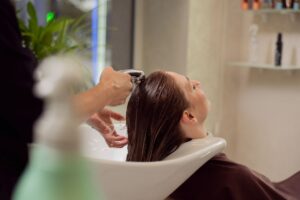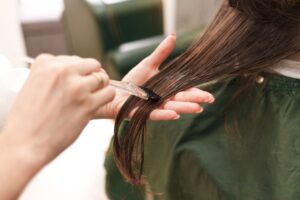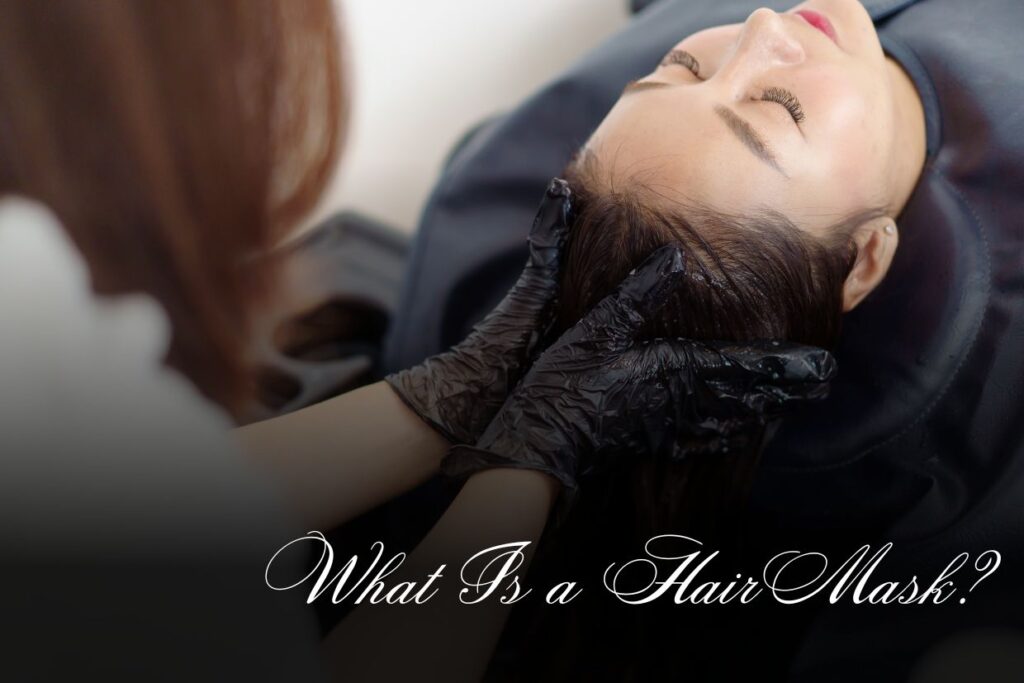A hair care routine is quintessential in having healthy, strong, and shiny locks. A hair care routine encompasses more than shampoo, conditioner, and an occasional hair treatment. In recent years, hair masks have gained popularity, with more people talking about their incredible benefits. They add an extra step of nourishment to hair that improves your hair’s overall health – regardless of the hair type.
Hair masks are a deep-conditioning treatment incorporated into your hair care routine. It locks in moisture, restores, and repairs damage, and it has proved highly effective for common hair concerns like breakage, dullness, and dryness. To answer more questions regarding hair masks, stick around till the end of this guide.
The Basics of Hair Masks
Are you experiencing dry and unruly hair even with conditioner? Then, your hair might be craving something a little more intensive than regular conditioner. That is a hair mask treatment! They bring life into your hair and make it healthy by giving a dose of the benefits needed. Even if you are already taking care of hair, our hair goes through so much on a day-to-day basis. Think about all the tugging and pulling into hairstyles, constant styling, heat, and colouring… On top of that, there is damage from UV rays and climate. Our hair goes through a lot, and not taking enough care of it inevitably shows through.
An intensive nourishment treatment that is premium salon quality is what can save your hair and blow a breeze of life to it.
How Do They Work?

As hair masks contain ingredients in heavier concentrations than regular conditioners, they hydrate and let the hair strands absorb moisture by strengthening the weakened hair. Nutrients, hydrating oils, and antioxidants are some of the acting ingredients here. They work by penetrating the hair shaft’s outer layer and reaching the cuticle of the hair strand. Once the mask’s ingredients are absorbed through the cuticle into the cortex of the hair, the properties of the mask can repair the hair from within. Leaving the mask in your hair for some time gives the hair strands enough time to absorb the ingredients.
As this deep-conditioning process does a lot more than regular conditioners, they restore many of the common hair concerns. To mention a few:
- Controls frizz
- Protects against heat damage
- Protects against coloured or bleached damage
- Moisturises deeply
- Helps hair breakage and hair fall
- Maintains shine and softness
- Protects against everyday styling
Different Types of Hair Masks
Hair masks are diverse, with different combinations offering different benefits. There is one for frizzy hair, brittle hair, curly or straight hair, and DIY masks to try at home. Basically, there is one for anybody! Let’s find out which one your hair needs.
Hydrating Masks
These are some of the popular kinds of masks. They work ideally well for anyone with dry hair wanting to hydrate and moisturise hair deeply. They are packed with water-based hydrating ingredients such as shea butter, argan oil, coconut oil, and aloe vera. They work into the hair strands and help restore the hair’s natural moisture. Hydrating masks are perfect for anyone with dry and frizzy hair to make those locks shine and bounce with hydration.
Repairing Masks
These masks are ideal for reparation of damaged hair. Coloured, bleached, over-styled or chemically treated hair can benefit from a repairing mask. They contain proteins such as keratin and collagen and nutrients to help restore the weakened hair strands. If you are someone with a routine of having to style your hair every day or like occasional hair treatments, a repairing mask helps reduce damage significantly.
Clarifying Masks
Ever feel like your hair is weighed down and your scalp is never cleansed properly? Then, you might be having product build-up and oils that hinder the natural shine of your hair. To give your hair a deep cleanse and restore a refreshing climate, clarifying masks work great. Ingredients like charcoal and clay have amazing detoxifying properties and cleanse deeply. Without stripping hair away of its natural oils, these masks clean the scalp and hair strands, leaving them feeling fresh.
DIY vs. Commercial Masks
As a budget-friendly option, DIY masks can be a good choice. They are a natural alternative and can be made from a few things lying in your pantry. If you ever find yourself in a situation where your hair mask has run out, don’t worry; grab a few of these ingredients and mix them up together. Honey, coconut oil, and egg whites could make an easy DIY mask for hydration and moisture. However, truth be told, DIY masks are not a long-term product. Unlike commercial masks, they are not formulated in laboratories with the correct concentrations of ingredients and long-lasting properties.
Best Masks for Different Hair Types
Selecting the right mask according to your hair type is important to treat your specific concerns.
- Damaged hair
Damage is inevitable sometimes, even if you take the proper care. Everyday styling, heating, colour, bleach, and poor nutrition are key driving forces of damaged hair. Masks that repair your hair are a great option for packing those weakened strands with rich nutrients to rebuild from the inside.
- Dry and frizzy hair
Frizz and dryness are two of the common complaints about hair. Nourishing and hydrating masks are the holy grail for frizz. Ingredients such as coconut oil, jojoba oil, argan oil, and shea butter are unique to combat dryness and frizzy hair.
- Curly hair
For anyone with curly hair, we understand the struggle to keep those lockets shining and bouncy. A hair mask is a must-have product in your routine to let your curls shine at maximum capacity. Masks for curl definition and moisture lock-in are what you should look for next.
- Thin hair
For thin hair, opt for lightweight masks that add strength and volume to your hair. Protein-rich masks nourish and enhance thin hair by boosting the hair cuticle with nutrients to pump life into the hair. Over time, thin hair is repaired by the mask and transformed into healthy hair that you can confidently wear.
Step-by-Step Guide to Using a Hair Mask

Here is a guide to understanding the step-by-step process of using a mask:
Pre-Application Tips
Masks should be used on clean hair; therefore, always shampoo your hair before applying any mask. Your shampoo should cleanse the scalp of any residue, oils, and product build-up by arranging a clear application of the mask. You can divide your hair next, if desired, to make the process of applying easier. This might be applicable, especially if your hair is long. Make sure your hair is somewhat wet/damp and not soaking wet. Simply squeeze excess water from the hair.
Application Techniques
Applying the mask is a very important step. Depending on the hair type, this may vary. For most masks, application on the mid-length to the ends is the way to go. However, if you have extremely dry and damaged hair, it is also okay to apply it from the roots all the way to the ends. If instructed in the mask, cover the hair with a shower cap for a deep conditioning treatment.
Duration and Rinsing
Depending on the mask, the duration to leave varies. Most masks go for 10-15 minutes and not longer than that. Afterwards, rinse thoroughly to eliminate any product left behind. Let your hair dry generally as you would, either blow dry or air dry, and you’re good to go!
Debunking Common Myths and Common Questions
Myth: Hair Masks Weigh Down Fine Hair
It is a common misconception that masks can weigh down fine hair. We are here to say that it is not true. While it can be somewhat correct that heavy oils can weigh down hair, it is always ideal to go for lightweight masks if your hair tends to hold on to products and cause build-up.
Myth: Hair Masks Are Only for Dry Hair
It is not true that masks are only for dry hair. Other hair types/concerns can benefit from masks incredibly. Go for a suitable mask, depending on your hair type. As discussed above, get insight into the hair care concerns you have regarding your hair and go for one.
How Often Should You Use a Hair Mask?
While shampoo and conditioner can be part of your shower routine frequently, hair masks are more of a treatment than a regular-use product. It is recommended that you use it once a week for best results.
Final Thoughts
Including the step of a hair mask into your hair care routine will show you exciting results in no time. A good mask should take care of the hair care concerns you have and treat them as nourishment. As said, there is one for everybody because masks are so diverse. From frizz to curls and damage repairing to hydrating, the suitable mask can essentially redo your hair.
At Ivan, we are passionate about giving our clients the best treatments to repair and nourish their hair with exceptional services. Visit our website to find out more about us and our spellbinding hair care treatments.


